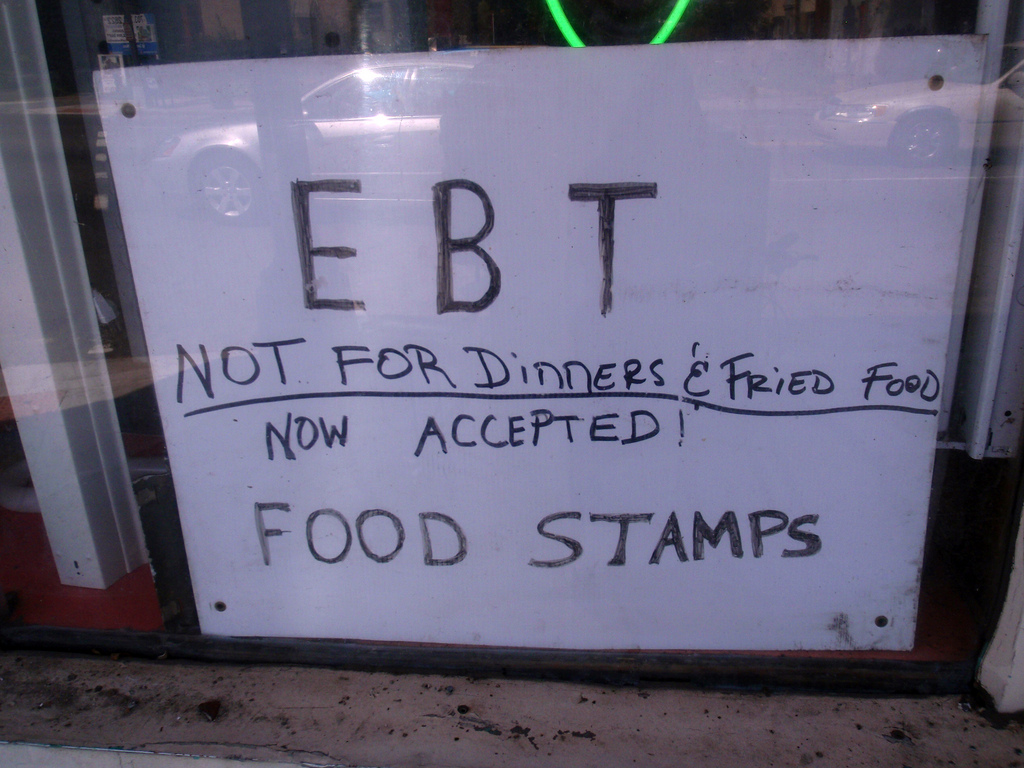Crypto
A husband hid $500,000 in bitcoin during a divorce — and got busted by a crypto hunter

A few months into her divorce proceedings, Sarita thought it was suspicious that her spouse, who earned $3 million annually, didn’t have many assets. After spending half a year on discovery and enlisting the help of a forensic accountant, the New York housewife eventually tracked down 12 bitcoins — then worth half a million dollars — in a previously undisclosed crypto wallet.
Sarita, who was married for a decade and asked to use a pseudonym to protect herself from retaliation, said she felt blindsided by her husband’s cryptocurrency investment.
“I know of bitcoin and things like that. I just didn’t know much about it,” Sarita said. “It was never even a thought in my mind, because it’s not like we were discussing it or making investments together. … It was definitely a shock.”
The world of financial infidelity has become increasingly sophisticated, as investors “hop” coins across blockchains and sink their cash into metaverse properties. An NBC News poll found that 1 in 5 Americans have invested in, traded or used cryptocurrency, with men between the ages of 18 and 49 accounting for the highest share of all demographic groups.
CNBC spoke with divorce attorneys from Florida, New York, Texas and California, blockchain forensic investigators, financial advisors, as well as spouses who were either hunting down virtual coins or the crypto holders themselves. Most agree that the law can’t keep up with all the new ways that people earn and safeguard digital assets that largely exist outside the reach of centralized intermediaries such as banks.
Family and marital law attorney Kim Nutter said she first dove into the crypto vernacular in 2015 but that the state of Florida, where her practice is based, only recently inserted “cryptocurrency” into the standard request for production of documents — a key part of establishing the couple’s marital property during the discovery process.
“I really still think the law is trying to catch up with this novel form of currency, even though it’s been around for quite a while,” Nutter said.
“What I find in litigation is because this is so new to all of us, even the most seasoned attorneys — unless you’re really going out of your way to study this — educating the court, knowing what to ask for, and finding the right experts, it’s much more of a scramble to me than other areas of law which had been around much longer,” she said.

How crypto hunters track down coins
Hunting hidden crypto stashes in divorce has created an entirely new job category of forensic investigators. CNBC spoke with several of these crypto hunters, and they say that while the blockchain is a public ledger, some spouses have become very good at covering their financial tracks.
“If you have a spouse that’s very tech savvy, and one that isn’t, it can be somewhat easy to hide those assets,” divorce attorney Kelly Burris told CNBC.
“The thing with cryptocurrency is it’s not regulated by any kind of centralized bank, so usually you can’t subpoena somebody and get documents and information related to somebody’s cryptocurrency holdings,” Burris said. She said she sees explicit cryptocurrency requests in discovery in 40% to 50% of her cases.
The Austin, Texas-based attorney told CNBC that the ideal way to get information on a spouse’s crypto holdings is to subpoena that information from a centralized crypto exchange. Otherwise, the process often involves a forensic analysis of their computer or phone to identify a wallet address and then a subsequent blockchain analysis.
“Crypto asset forensics, cryptocurrency forensics, and blockchain forensics have become a significant part of our practice and by far, the fastest growing part of our practice,” said Nick Himonidis, a New York-based forensic investigator.
Himonidis, who is also a licensed private investigator and a computer forensic expert, estimates that 25% of his divorce-related cases involve some elements of cryptocurrency. Some of those cases, he said, are simple and straightforward — situations where, for example, a cryptocurrency such as bitcoin is a custodial asset held in a brokerage account or on a trading platform such as Coinbase.
“These companies keep records just like your broker at Morgan Stanley would keep records of your trades,” he said.
Other cases are what Himonidis describes as the “whole enchilada.”
“They’re calling us because they want to get us appointed as the neutral forensic cryptocurrency expert to marshal and account for the party’s crypto assets and track down any undisclosed crypto assets that one party may have,” he said.
When Himonidis first got into hunting crypto, it was all about bitcoin, ether and a handful of other coins. CoinMarketCap now lists more than 24,000 cryptocurrencies, with a collective market cap of $1.1 trillion.
“There’s not just a couple of blockchains to worry about anymore. There’s hundreds and hundreds of coins out there on their own little independent blockchains,” he said.
One of the core tenets of bitcoin is that its public ledger, which stores all token transactions in its history, is visible to everyone. But there is a subset of cryptocurrencies known as privacy tokens, which have anonymity features built into them. Coins such as monero, dash and zcash, which operate on their own blockchains, disguise practically all transaction details, including the identity of the sender and recipient, as well as the transaction amount. Himonidis said it is “virtually impossible” to trace and de-anonymize transactions in monero.
In one case, Himonidis found around $700,000 worth of monero on a MacBook that turned up in discovery.
“We found something called a command line wallet for monero,” Himonidis said, describing it as a kind of software wallet. “You can’t find it with the Finder on the Mac. You need to go into a command line prompt to access this wallet — a Bash shell command on a Mac environment.”
Multiple investigators and attorneys told CNBC that they are always on the lookout for any type of crypto — but particularly privacy tokens. There is also special attention paid to any kind of hardware wallet or computing device, which can double as a form of “cold storage” for cryptocurrencies.
People who hold their own cryptocurrency can store it “hot,” “cold” or some combination of the two. A hot wallet is connected to the internet and allows owners relatively easy access to their coins so they can spend their crypto. The trade-off for convenience is potential exposure to bad actors — and forensic investigators working for divorce attorneys.
A person holds a cryptocurrency hardware wallet.
Geoffroy Van Der Hasselt | AFP | Getty Images
With cold storage, the private keys — or the passwords that enable the crypto to be moved out of the wallet — are stored on devices, such as computers, that are not connected to the internet. Thumb drive-size devices, such as a Trezor or Ledger, offer another way to secure crypto tokens cold by safeguarding both the crypto itself and the keys to access it.
Mark DiMichael, who has been in the forensic accounting field for more than 14 years and is a certified cryptocurrency forensic investigator, described one case to CNBC in which a divorcing couple had a stand-off over a password-protected Ledger device.
In the case, DiMichael said, the husband had a Ledger and then the wife found the device in the house and took it. “So the wife had the Ledger, but she didn’t know the pin number, or password. And the husband — he knew the pin number, but he didn’t have the Ledger.”
Neither could access the funds without the cooperation of the other.
DiMichael, who said he has tracked down millions of dollars worth of cryptocurrency since he began tracing digital assets in 2018, explained that when crypto is stored cold, it may be more difficult to seize but it is still traceable.
“If they’re doing on-chain transactions and they move something to cold storage, it’s still visible on the blockchain,” he said.
DiMichael told CNBC that in a divorce case if you can at least prove that the crypto is there — or that it hasn’t been sold — that’s usually sufficient for a judge. If a spouse bought 100 bitcoins on Coinbase, for example, and later transferred the currency off an exchange to a wallet, it’s still sitting there and fully visible on the blockchain. A court can then order other remedies to retrieve those funds, according to DiMichael.
New York divorce attorney Sandra Radna told CNBC that right at the beginning of a case, when she serves the summons and complaint for a divorce, she also asks for a preservation of assets — known as the “automatic orders” in New York. At this point, Radna said, she singles out computer hard drives in her request, to ensure that nothing will be destroyed. This is key since these devices are what the forensic investigator uses to determine where the assets — both crypto and otherwise — went.
“They go through the hard drive of the computer to look for ticker symbols within emails, which is how they can see what purchases were made,” Radna said.
Radna said she also asks for information such as a spouse’s “public keys,” which she described as being almost like an account number on the blockchain.
Currently, much of the world runs on something called asymmetric cryptography, in which individuals use a private and public key pair to access things such as email and crypto wallets. A private key is a secure code that grants the owner access to their crypto holdings — whereas the public key is a unique wallet address. With the public key, it is possible to find a full history of every transaction made into or out of that wallet.
“If you have that information, you will be able to see every transaction that they did, and it’s something that the attorneys are able to get as part of discovery because it’s not giving a private number, a private key,” Radna said.
Bill Callahan of the Blockchain Intelligence Group said that with that wallet address, crypto hunters are able to tell the attorney or the attorney’s investigator that they should go to a specific exchange to request more information.
“One of the things we’re looking for are the on- and off-ramps. We’re looking to see how the money came on to the blockchain, where it may be, and then where it’s off to,” Callahan said. He said the flow of funds can also show whether something was purposely hidden through an obfuscation technique such as using a crypto asset mixer.
These so-called mixers are designed to obscure trails of funds by blending someone’s tokens with a pool of other individuals’ assets on the platform. They go beyond traditional crypto platforms in further concealing the identity of the people involved in transactions.
“We can kind of track and trace the flow after the proceedings are over to see if something was purposely hidden,” Callahan said. “The blockchain never forgets.”
In one case, Himonidis said, he had to track around $2.3 million that was emptied out of a Coinbase account within a few months of divorce proceedings commencing. The crypto coins hadn’t been cashed out to fiat but instead moved as crypto to addresses outside Coinbase in a series of approximately 14 outbound transfers.
“All of it wound up in two or three different wallets on a foreign exchange — a place like Coinbase, but in a foreign country that does not operate in the U.S. and is not subject to the laws and jurisdiction in the United States,” Himonidis told CNBC.
DiMichael said he has run into similar issues with cases where funds were transferred to a global Binance account, and he was, therefore, unable to subpoena records since the funds were in an untouchable jurisdiction.
Tracking assets gets especially complicated when investors begin to move their tokens across blockchains.
DiMichael said “chain hopping” — a person switching from one blockchain to another very quickly — is an increasingly common technique used to throw off investigators.
Blockchains have their own native tokens. With ethereum, for example, the token is ether. Developers have built cross-chain bridges to let users send tokens from one chain to another. Transfers of digital assets between chains has helped to expand the crypto market by giving people more ways to pay and transact. Cross-chain bridges are vital to the development of the decentralized finance, or DeFi, space, which is crypto’s alternative to the banking system.
But in a divorce case these bridges make it difficult for investigators to follow the trail of tokens.
Take the crypto token polka dot, which is trading at around $5.40 and has a market valuation of over $6.3 billion. Because the virtual coin is on its own blockchain, when someone wants to trade it they need to “wrap it” in order to buy and sell it on the ethereum blockchain, Himonidis told CNBC. Wrapped tokens are pegged to the value of the original coin but are interoperable with other blockchains.
“If we need to start tracing stuff like that, it gets very complicated,” said Himonidis. “When they do coin swaps, now we’re jumping — literally jumping — blockchains, trying to trace the funds. It was complicated enough before, and now, it’s gotten exponentially more complicated in just the last year or two.”
Himonidis said he and his firm are able to follow funds across blockchains using a tool previously only available to law enforcement, the Internal Revenue Service, and financial institutions that need it for their know-your-customer and anti-money-laundering functions.
But even with new search tools, Himonidis described his work as a literal race to try to keep up with the latest in rapidly evolving crypto tech.
“It lends itself very well to people who have figured out how it works and understand what’s going on there,” said Himonidis. “It’s this constant arms race.”
DiMichael agrees, telling CNBC it was “inevitable” that these kinds of obfuscation techniques would crop up given the amount of money in the crypto ecosystem now, even in the midst of a down market.
“But it is still coming as a total shock to the so-called non-monied spouses,” DiMichael said.
Many centralized exchanges such as Gemini offer customers the option to stake their tokens in order to earn yield on their digital assets that would otherwise sit idle on the platform. With crypto staking, investors typically vault their crypto assets with a blockchain validator, which verifies the accuracy of transactions on the blockchain. Investors can receive additional crypto tokens as a reward for locking away those assets.
In one of his divorce cases, DiMichael said, the husband disclosed the cryptocurrencies he owned, but he didn’t disclose the tokens that were staked.
“The ones that he staked, he wasn’t really counting those in his numbers, so I uncovered that through the investigative process,” DiMichael said. “Even though this cryptocurrency wasn’t in his wallet anymore, he still had rights to it.”

Valuing crypto property in divorce court
Even when both parties in a divorce are totally above board on discovery, volatility in the crypto market can prove to be a major issue when attorneys try to value a marital estate.
NodeBaron, a 36-year-old vascular surgical engineer and veteran who asked to be identified by his Twitter username, said he liquidated his stake in dogecoin for around $5,000 during his divorce. Six months later, his holdings would have been worth close to $1 million.
“The cost to get a divorce was almost like a million-dollar decision,” he said.
Divorce attorney Alexandra Mussallem said that because California, where her practice is based, is a community-property state, she often advises her clients on whether to stay in a particular asset — that is, to take half of a community asset in kind versus seeking a liquidated value.
“With volatile investments, the right strategy for a spouse trying to build a stable asset base will be to seek a cash buyout at market value on crypto holdings,” said Mussallem, adding that it is a question of managing risk.
The spouse with higher risk tolerance may be eager to cash out their partner and retain the crypto asset, given the heavy fluctuations in the crypto market, she said.
Burris, the Texas-based attorney, said that in her first crypto case, around five years ago, the husband wanted to buy the wife out of his crypto holdings — which ultimately proved to be a good decision for him, given the rapid price appreciation in the crypto market since 2020.
New York is an equitable distribution state, meaning that a spouse gets 50% of the marital assets accumulated during the marriage.
Radna, the New York divorce attorney, told CNBC that digital assets can be taken in two ways.
“One way is to say, what is the value of that digital asset today, and we divide that up,” she said, calling the process analogous to stocks. “You can either take the shares of stock, or you can take the value of that.”
In an up market, Radna said, spouses typically opt for taking the value of the crypto holdings.

Valuing and dividing a marital estate can become especially problematic when spouses diversify their crypto portfolio into metaverse properties and non-fungible tokens, or NFTs. Despite the NFT market collectively losing nearly $2 trillion since its peak in 2021, blue-chip series such as Bored Ape Yacht Club still have a floor price of more than $80,000.
“You have digital land as NFTs, you have digital artwork as NFTs, you have digital metaverse clothing in NFTs,” said DiMichael, adding that one of his clients had sold $80 million worth of NFTs.
DiMichael, who first spoke with CNBC in 2022, said that if a spouse has a couple of NFTs from a collection like the Bored Ape Yacht Club or Crypto Punks, it could add a couple hundred thousand dollars to the marital estate.
“NFTs are really driving me nuts. How do I find the real expert to value the NFT, which is my obligation for a court of law?” said Nutter, the Florida divorce attorney, referring to the Daubert standard, a rule that governs the admissibility of expert witness testimony in court. “It requires more peer reviews, articles, a lot more science and community acceptance, which is challenging when you have something particularly like an NFT.”
“NFTs are kind of new, and people know what they are, but to find somebody who has the level of expertise that could satisfy a court Daubert challenge and questioning I think is problematic for pretty much everybody,” she said. “Doesn’t matter what side of the coin you’re on.”
Radna, who mostly handles litigated divorces and has been practicing for 30 years, said she specifically looks for digital real estate assets in the metaverse when she requests discovery.
“You think it’s not real, but they make real income from it,” said Radna. “They can get paid for someone to rent that digital real estate where they can have advertising and a billboard, but it would be in the metaverse.”
If a spouse owns digital real estate and they’re getting rent for it, that would be income and counted in the divorce, according to Radna, who said 20% of her caseload has involved crypto in the last few years.
“It’s a whole new world, and people should be aware of it,” she added.
Certified financial planner and analyst Davon Barrett told CNBC that with a traditional asset class, he can just give a divorce agreement to Fidelity, for example, and the company will take care of the split on its own.
“But with cryptocurrency, it’s a newer space,” said Barrett, the lead advisor at Francis Financial in New York. “It’s harder to get customer service on the phone at times, so splitting it becomes a little bit more difficult.”
The tax implications are another major consideration when choosing how to divide crypto assets.
The IRS treats cryptocurrencies like property, meaning that each time you spend, exchange or sell your tokens, you’re logging a taxable event. There’s always a difference between how much you paid for your crypto, which is the cost basis, and the market value at the time you spend it. That difference can trigger capital gains taxes.
“There are people who bought bitcoin years ago, so their cost basis was $10,000,” Barrett said.
He gave a hypothetical where a client would potentially be smarter to keep $500,000 in cash, versus bitcoin, so that their spouse is the one stuck with the gains.
“The government, they may not have gotten it in the past, but Uncle Sam is really good about getting his money,” Barrett said.
“I think that you have your head in the sand if you don’t think that this is something that’s here to stay, even if during a down market,” Radna said.
“Like any other asset, just like the stock market, there’s going to be ups and downs. I think the people that are interested in digital assets are going to continue to be interested in digital assets,” she said. “When it’s a down market, that’s when you go shopping.”


Crypto
4 Ways Cryptocurrency is Empowering Communities and Individuals
You mostly know cryptocurrencies for their impact on the financial world, but there’s more to learn about their social impact on communities and individuals. Their impact on philanthropic initiatives is quickly becoming noticed by individuals, communities, and governments of all levels in different regions. They boast borderless and decentralized features, offering a new path toward financial freedom and empowerment.
If you plan to explore the uses of cryptocurrencies, especially how they help empower communities and individuals, this is the right place. Below, we’ll look at four ways cryptocurrency empowers communities and individuals to help you get started with crypto correctly.
Improved Access to Financial Services
As a digital asset, cryptocurrency provides greater financial inclusion to individuals and communities disadvantaged by the lack of access to traditional financial systems. With superpowers like the U.S. still having 2.6% of an unbanked population, the situation could worsen in less developed countries with inferior banking systems. Registering cryptocurrency as a substitute solution is a great reprieve for many individuals and communities in these regions.
Users can send and receive crypto coins between family and friends in record time without worrying about huge transaction fees and delayed remittance. For example, you can now buy Bitcoin faster and add it to your wallet, where you can send it to your loved ones whenever and wherever you are. Organizations in these disadvantaged regions can equally receive generous donations through crypto donations for their sustenance.
Protection from Inflation and Economic Uncertainty
When inflation and other economic mishaps occur, traditional fiat currencies tend to lose their value, which disadvantages holders. However, with cryptocurrency, especially scarce ones, you can enjoy an alternative store of value not subject to inflationary pressure and government manipulation. This is a great way for individuals and businesses to protect their wealth and hedge against economic uncertainties.
Investment and Wealth Creation Opportunities
Cryptocurrencies have opened many opportunities for individuals and businesses looking to explore decentralized finance (DeFi) and innovative blockchain projects. Through these two main paths, individuals can now lend, stake, and tokenize assets to grow wealth and diversify their investment portfolio. The good thing about crypto investment opportunities is that you can explore its borderless features and interact with clients and businesses across the globe.
Since it also allows for satisfactory privacy when transacting, cryptocurrency can open your thinking about money, ushering you to an open gateway to endless investment options. Whether your interest is in crowdfunding, NFTs, or tokenization of assets, crypto offers numerous avenues to generate crypto tokens or income.
Philanthropy and Charity
The challenges of transparency in charity organizations are slowly becoming a thing of the past with the adoption of Bitcoin technology in philanthropy. Organizations and individuals can now track the flow of funds, ensuring that donations are used for their intended purpose. This way, donors can be confident that their funds are put to good use, thus building trust and opening doors for more future donations.
Thanks to crypto’s borderless acceptance, organizations can receive donations from anywhere in the world instantly and even anonymously. All the bureaucratic transaction processes associated with traditional fiat currency barely concern organizations already subscribing to crypto donations.
The use of cryptocurrency has had its fair share of benefits, especially in empowering individuals and communities. Regardless of the angle of opportunity you want to explore with your new-found crypto assets; you can always find something to smile about from these four options above. So, if you had doubts about the uses of crypto and its communal and individual benefits, now you have something to help you explore your options courageously.
* The information in this article and the links provided are for general information purposes only
and should not constitute any financial or investment advice. We advise you to do your own research
or consult a professional before making financial decisions. Please acknowledge that we are not
responsible for any loss caused by any information present on this website.
Crypto
Cryptocurrency Price Today: Bitcoin Dips Below $67,000 As Top Coins Continue To Land In Reds

Bitcoin (BTC), the world’s oldest and most valued cryptocurrency, dipped below the $67,000 mark over the weekend. Other popular altcoins — including the likes of Ethereum (ETH), Dogecoin (DOGE), Ripple (XRP), Solana (SOL), and Litecoin (LTC) — landed in the reds across the board as the overall Market Fear & Greed Index stood at 55 (Neutral) out of 100, as per CoinMarketCap data. The BRETT token emerged to be the biggest gainer, with a 24-hour jump of over 15 percent. Notcoin (NOT) became the biggest loser, with a 24-hour dip of nearly 8 percent.
The global crypto market cap stood at $2.43 trillion at the time of writing, registering a 24-hour dip of 0.88 percent.
Bitcoin (BTC) Price Today
Bitcoin price stood at $66,480.09, registering a 24-hour gain of 0.42 percent, as per CoinMarketCap. According to Indian exchange WazirX, BTC price stood at Rs 59.66 lakh.
Ethereum (ETH) Price Today
ETH price stood at $3,517.76, marking a 24-hour dip of 1.25 percent at the time of writing. As per WazirX, Ethereum price in India stood at Rs 3.21 lakh.
Dogecoin (DOGE) Price Today
DOGE registered a 24-hour loss of 1.30 percent, as per CoinMarketCap data, currently priced at $0.1394. As per WazirX, Dogecoin price in India stood at Rs 12.23.
Litecoin (LTC) Price Today
Litecoin saw a 24-hour dip of 0.58 percent. At the time of writing, it was trading at $77.25. LTC price in India stood at Rs 6,959.64.
Ripple (XRP) Price Today
XRP price stood at $0.4816, seeing a 24-hour loss of 1.15 percent. As per WazirX, Ripple price stood at Rs 43.87.
Solana (SOL) Price Today
Solana price stood at $150.85, marking a 24-hour dip of 2.19 percent. As per WazirX, SOL price in India stood at Rs 13,358.12.
Top Crypto Gainers Today (June 17)
As per CoinMarketCap data, here are the top five crypto gainers over the past 24 hours:
Brett (Based) (BRETT)
Price: $0.1595
24-hour gain: 15.45 percent
JasmyCoin (JASMY)
Price: $0.03748
24-hour gain: 11.77 percent
Lido DAO (LDO)
Price: $2.17
24-hour gain: 9.21 percent
Dog (Runes) (DOG)
Price: $0.0073
24-hour gain: 9.18 percent
Jupiter (JUP)
Price: $0.9176
24-hour gain: 7.48 percent
Top Crypto Losers Today (June 17)
As per CoinMarketCap data, here are the top five crypto losers over the past 24 hours:
Bitcoin (NOT)
Price: $0.0186
24-hour loss: 7.24 percent
Akash Network (AKT)
Price: $3.18
24-hour loss: 5.04 percent
BitTorrent [New] (BTT)
Price: $0.0000009525
24-hour loss: 4.70 percent
Oasis (ROSE)
Price: $0.1117
24-hour loss: 4.22 percent
Ondo (ONDO)
Price: $1.14
24-hour loss: 4.04 percent
What Crypto Exchanges Are Saying About Current Market Scenario
Mudrex co-founder and CEO Edul Patel told ABP Live, “Bitcoin witnessed selling pressure over the past week as prices dropped below the $67,000 mark, but then easing up over the past 24 hours as price movement flattened. Bitcoin’s closest support level lies at $64,825, while the next resistance point awaits at $66,978. Meanwhile, Ethereum too has witnessed marginal selling pressure in the past week as the market gears up for Ethereum ETFs to go live in early July. The overall sentiment in the market continues to point to greed.”
Rajagopal Menon, Vice President, WazirX, said, “Bitcoin remains below its 50-day moving average, a technical indicator that could suggest a potential short-term price decline. However, a healthy buffer above the key 200-day moving average hints at a possible long-term bullish trend. If bulls can push Bitcoin above the 50-day hurdle at $66,425, it could trigger a rally towards the crucial resistance level of $69,000. Breaking decisively above that level could even put the coveted all-time high of $73,808 back on the table.”
Sathvik Vishwanath, CEO and co-founder of Unocoin, said, “The Biden administration is set to discuss bitcoin policy in early July, signalling a potential shift in US crypto strategy. The round table is organized by the pro-crypto-democratic Rep. Silicon Valley’s Ro Khanna and will be attended by billionaire Mark Cuban and other lawmakers. The meeting aims to maintain US leadership in bitcoin and blockchain innovation amid regulatory debates. Cuban believes Biden’s crypto stance could influence the 2024 election. Meanwhile, Trump has pledged to end Biden’s “war on crypto” and support bitcoin mining, promising a more favourable regulatory environment if elected. Bitcoin is trading around $66,400 with a bearish outlook.”
Subscribe And Follow ABP Live On Telegram: t.me/officialabplive
Disclaimer: Crypto products and NFTs are unregulated and can be highly risky. There may be no regulatory recourse for any loss from such transactions. Cryptocurrency is not a legal tender and is subject to market risks. Readers are advised to seek expert advice and read offer document(s) along with related important literature on the subject carefully before making any kind of investment whatsoever. Cryptocurrency market predictions are speculative and any investment made shall be at the sole cost and risk of the readers.
Crypto
JPMorgan Doubts Crypto Inflows Will Remain as Robust

America’s largest bank says the state of the cryptocurrency market may not be sustainable.
This year has seen crypto net inflows of $12 billion thus far — a figure that could jump to $26 billion by year’s end assuming flows continue apace — a trend driven by demand for spot bitcoin exchange-traded funds (ETFs), JPMorgan Chase analyst Nikolaos Panigirtzoglou wrote in a note cited in a Sunday (June 16) report by Seeking Alpha.
While this number is impressive, Panigirtzoglou wrote it might not be entirely made up of new funds coming into the crypto space.
“We believe there has likely been a significant rotation away from digital wallets on exchanges to the new spot bitcoin ETFs,” he explained.
This movement is noticeable, he noted, as bitcoin reserves on exchanges have dropped by 220,000 BTC, or $13 billion, since the Securities and Exchange Commission (SEC) approved bitcoins ETFs in January.
“This implies that the majority of the $16 billion inflows into spot bitcoin ETFs since launch likely reflects a rotation from existing digital wallets on exchanges.”
Panigirtzoglou attributed the rotation to “the cost effectiveness, deeper liquidity, regulatory protection and convenience of the ETF wrapper that has become market participants’ preferred choice of instrument for bitcoin exposure for both existing and new crypto investors.”
All told, the analyst has doubts that crypto inflows will continue at the same pace for the remainder of 2024, considering how high the price of bitcoin is relative to the cost to produce one or when compared to gold.
This isn’t the first time this year that the banking giant has expressed its doubts about bitcoin ETFs, writing soon after the SEC’s ETF approval that the funds would draw money for existing crypto products but not attract new capital.
“We are skeptical of the optimism shared by many market participants at the moment that a lot of fresh capital will enter the crypto space as a result of the spot bitcoin ETF approval,” the banks’ analysts wrote in January.
Last month saw reports that venture capital investment in crypto companies had begun increasing after cooling for two years, climbing to $2.4 billion in the first quarter of 2024.
“The crypto industry is still in its early stages, and there is a lot of room for growth and innovation,” PitchBook senior analyst Robert Le wrote in a report quoted by Reuters.
“Barring any major market downturns, we expect the volume and pace of investments to continue increasing throughout the year,” he added.
-

 News1 week ago
News1 week agoWould President Biden’s asylum restrictions work? It’s a short-term fix, analysts say
-

 Politics1 week ago
Politics1 week agoNewson, Dem leaders try to negotiate Prop 47 reform off California ballots, as GOP wants to let voters decide
-

 World1 week ago
World1 week agoDozens killed near Sudan’s capital as UN warns of soaring displacement
-

 News1 week ago
News1 week agoRead Justice Clarence Thomas’s Financial Disclosures for 2023
-

 World1 week ago
World1 week ago‘Bloody policies’: Bodies of 11 refugees and migrants recovered off Libya
-

 Politics1 week ago
Politics1 week agoGun group vows to 'defend' Trump's concealed carry license after conviction
-

 Politics1 week ago
Politics1 week agoShould Trump have confidence in his lawyers? Legal experts weigh in
-

 Politics6 days ago
Politics6 days agoGOP releases Jan. 6 clip of Pelosi saying 'I take responsibility' as she discussed National Guard absence


















